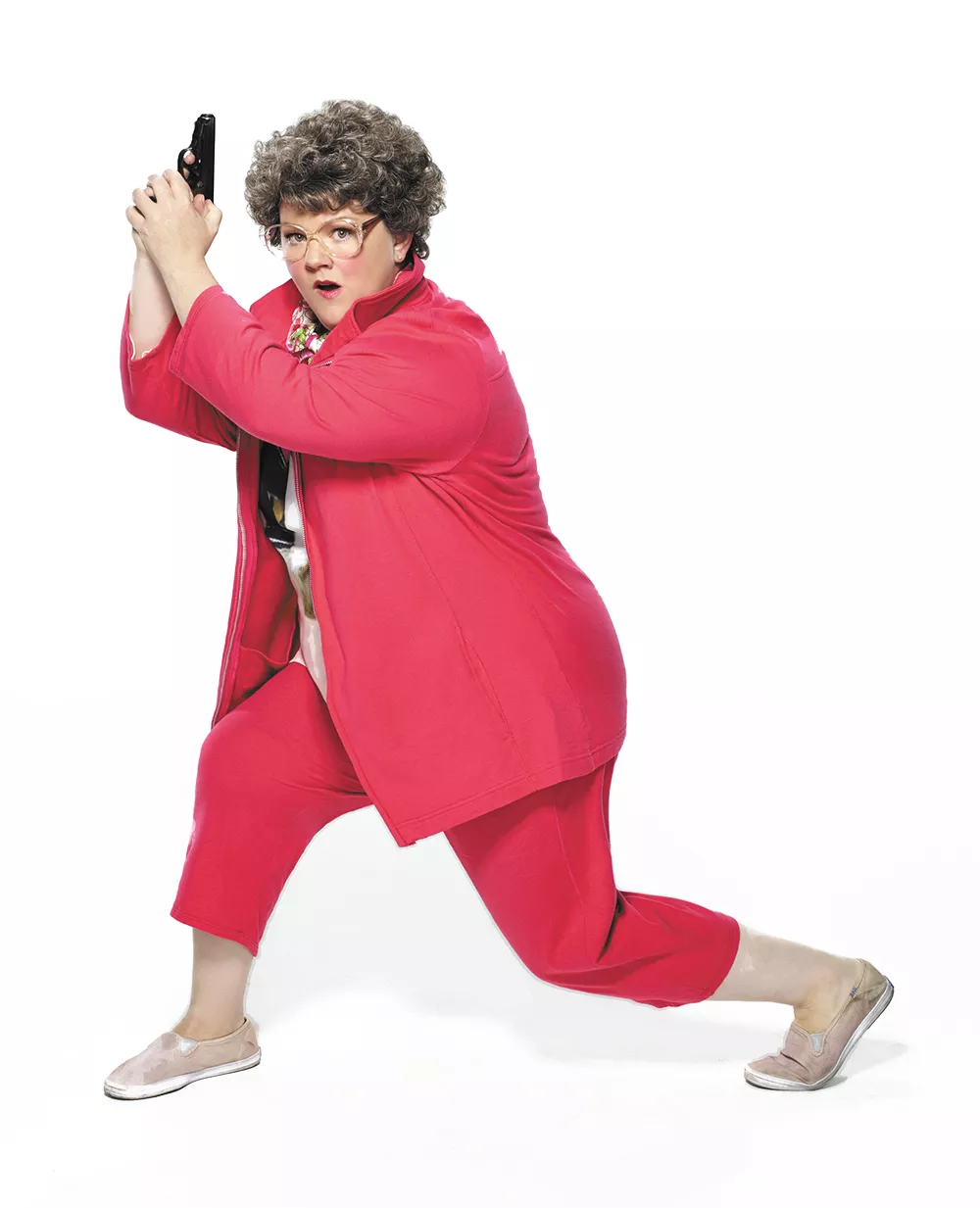Director Paul Feig has made two very bad movies with Melissa McCarthy. The Heat and Bridesmaids were popular, but they were also cruel and unforgivably unfair to the women they were about.
I console myself with the thought, however unlikely it may be, that it was McCarthy's irrepressible charm and inherent likability, even amidst all the abuse she was forced to endure, that drew moviegoers to her (as well as to the other women featured in these films, of course).
But now, Feig (also screenwriter here) has made a movie that allows McCarthy to be her own delightful self without asking us to laugh at her. We laugh with McCarthy, and that's fine. And in Spy, we laugh with her while also commiserating with her, because this sneakily subversive movie confronts head-on issues of women's confidence (or lack thereof) and men's arrogance (and fear!) that so many movies, including The Heat, dare not touch, though they sometimes pretend to.
I hasten to add: Spy does its wonderful, seditious feminist things while also being funny as hell. I never laugh out loud at movies. I laughed out loud a lot at Spy. (Be sure to stay through the credits for one final laugh-out-loud moment.)
At first, Spy looks like a simple spoof of James Bond flicks and other secret-agent adventures. Bradley Fine (Jude Law, sporting a perfect American accent) is a top CIA operative, all suave and cool and badass and tuxedoed at the Bulgarian cocktail party he has infiltrated in order to catch a nuclear terrorist. We quickly see, though, that his awesomeness is at least as much a function of the assistance given him remotely by Susan Cooper (McCarthy), his handler back at CIA HQ and in his earpiece, as it is his own doing. They're a team, a very capable team, him doing the physical stuff of taking out bad guys and her guiding him, alerting him to the henchmen coming around a corner from her perch behind a computer at Langley. (Is real-time infrared satellite imagery a thing? It is here.)
But then comes the sneaky subversion: When Fine's mission unearths the fact that the big-time European arms dealer they're after — Rayna Boyanov (Rose Byrne; yay and hooray, a female villain whose badness has nothing to do with sex!) — knows the identity of all the CIA's current field agents, they have to send in someone she won't possibly know. Someone like Susan, who kicked ass at the CIA training academy, but has been deskbound ever since. Yet as much as Susan aches for a chance to prove herself, she also worries that she's not up to the job... because she has been led by Fine (and the world at large) into believing that the best use of her talent is supporting — to the point of mothering, even — the likes of Bradley Fine.
Spy makes it very, very clear, in ways that are very, very funny, that women don't get the respect they deserve because men fear their brains and competence, and worry about the potential competition that presents. It may be unconscious or it may be deliberate, but the men here underestimate women, ultimately to their own detriment, and the women end up overcoming the preconceptions about what they're capable of in glorious ways. The men include Jason Statham, sending up his on-screen persona as a ridiculously badass CIA agent, and not bothering with an American accent at all; I'm so happy to see that Statham has a sense of humor about himself. The women include Miranda Hart as another support agent who gets out into the field, and Allison Janney as a CIA deputy director who's had enough with women who lack confidence in themselves for no good reason.
I love this movie so much, with only one caveat: Comedies for grown-ups do not need poop jokes. (Nor do comedy for kids, for that matter.) Ditto the other few bits of pure gross-out: totally unnecessary, and totally unfunny. They don't overwhelm the film, nor do they negate the rest of the genuinely clever humor, but they do hint that Feig doesn't trust himself that his smart, sympathetic, witty approach to the particular battles professional women fight — one that also is mostly sympathetic to men learning to deal with women as equals — is enough. It totally is, dude. Don't let Hollywood make you think otherwise. ♦

